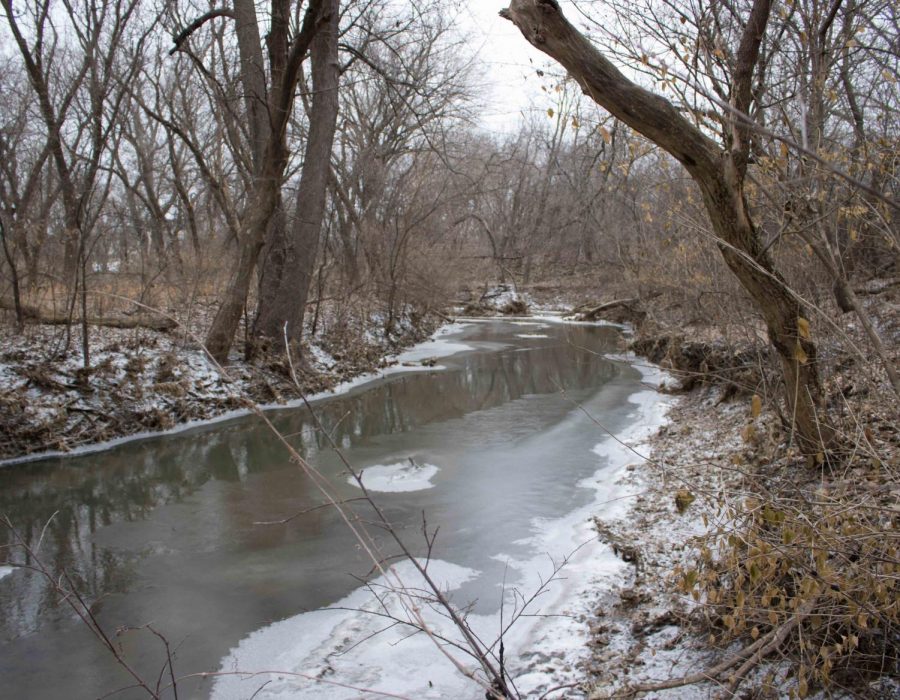Water treatment bill enacted
The Cedar Valley watershed uses groundwater, instead of surface water like this stream near UNI, for its drinking water, according to Clayton.
Jan 25, 2018
In 2017, Art Cullen of the Storm Lake Times won the Pulitzer Prize for Editorial Writing. Cullen’s editorials centered around the issue of water quality in the state. Recently, the Iowa Senate voted on a new bill that changes the way water quality projects are funded in the state, as well as adding a new exemption to some existing rules.
“Most of what people are talking about in the state with regard to water quality is surface water quality,” said Maureen Clayton, associate professor of biology and associate dean of the college of humanities, arts and sciences. “It generally refers to two different areas: one of those is contamination by microbes, for example — E. coli. Those are things that have standards; they have regulatory limits.”
According to Clayton, surface waters can be placed on an impaired waters list, which is a list of waters that do not meet regulations put forth by the Environmental Protection Agency (EPA). The Department of Natural Resources (DNR) and the Iowa Department of Agriculture and Land Stewardship (IDALS) share the responsibility of oversight and execution of EPA regulations in the state of Iowa.
“Impairments can come in certain forms; one of them is from E. coli — or other microbes,” Clayton said. “Things like pesticides can come from sediment, but the one that people are generally talking about is that [surface water] is impaired because of excess nutrients.”
The nutrients, nitrogen and phosphorus, are not toxic in and of themselves, according to Clayton, but large spills of such nutrients can cause fish kills or other problems.
The bill, senate file (SF) 512, maintains EPA regulations but clarified what defines a point source and relegated funds. Under old regulations, a “point source” was a singular point to which a source of nutrients or runoff could be traced, like a pipe, ditch, conduit, well, etc. After these new amendments take effect, a point source will now purposefully exclude “agricultural stormwater discharge and return flows from irrigated agriculture.”
The Iowa Farm Bureau Federation (IFBF) applauded the passage of SF 512.
“Iowans agree that water quality improvement is a shared goal,” said IFBF President Craig Hill in a statement. “This legislation is a historic milestone that will help enhance efforts and continue the positive momentum of water quality improvement and soil conservation.”
SF 512 also withdrew language that prevented the appropriation of funds with the goal of ensuring that sewer rates do not exceed 1.5 percent.
Clayton said that, this change in appropriation can, in part, help small communities pay for the larger equipment needed to remove nutrients like nitrogen and phosphorus.
“If you go to a much smaller community, proportionately, [the price of a unit] will be much much more expensive,” Clayton said.
According to Clayton, current nutrient removal processes are voluntary.
“Are these practices for nutrient reduction — should they be voluntarily applied or should they be mandatory?” Clayton said. “That is sort of the crux of the argument.”
As of press time, the bill’s floor managers, Representative Chip Baltimore (R) and Senator Ken Rozenboom (R), could not be reached for comment on the bill’s passage.









